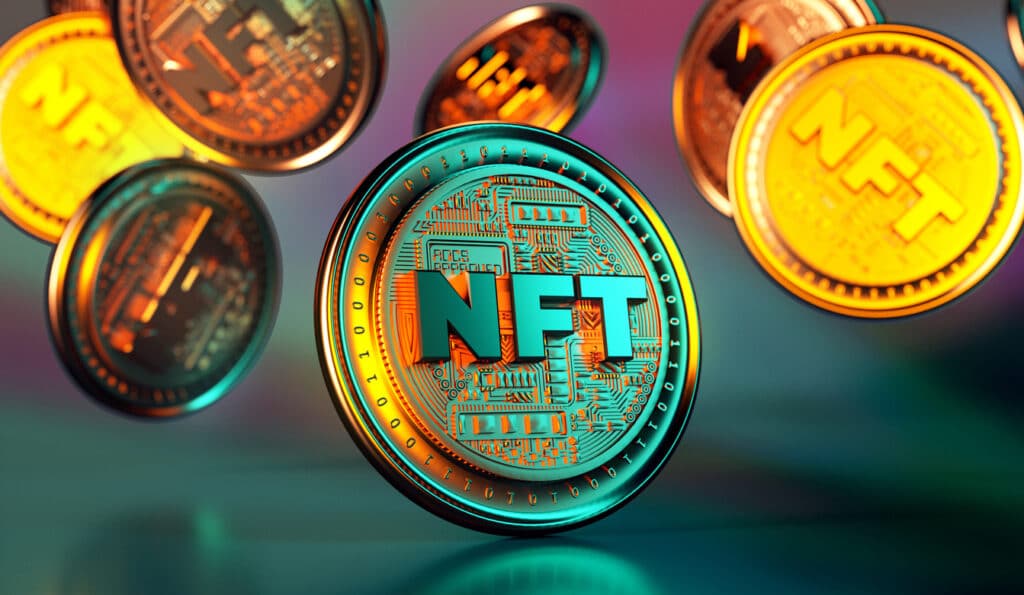
- Trades in non-fungible tokens (NFT) come into the spotlight
- Reports suggest artificial trading activity is taking place
- The scheme aims to keep prices high and lure in new unsuspecting bidders
The fastest-growing NFT marketplace Blur has come into the spotlight with claims that artificial trading activity on the platform keeps prices and trade volumes high. Sceptics claim that up to 80% of the trading volume in some NFTs is ‘inorganic’, part of a market manipulation scam designed to lure in newbies.
What is ‘Wash’ Trading
Wash trading involves buying and selling an asset in quick succession to create a track record of trading activity. It originated in the US stock markets in the early 1900s as it offered a way to crystallise losses on positions for tax purposes.
In the case of NFTs, little risk is taken on by the buyer, who can set the price of both transactions. But for an unsuspecting new entrant to the market, the wash trade can suggest a digital asset is becoming more popular. The problem is that once the NFT is bought, often at an overinflated price, the other traders apparently interested in the market disappear.
How Big is the NFT ‘Wash’ Trading Problem?
NFTs started gaining momentum in terms of mainstream investing in 2017 and took off in 2021. The dedicated marketplaces have now reported $73.8 billion worth of trading activity has taken place. Data provided by Dune Analytics suggests that more than 42% of the volume ($31.2bn) can be attributed to wash trading.
Research carried out by CryptoSlam into trading activity at Blur suggests that in recent months up to $577m, or 80% of NFT trades have been ”inorganic”. Other NFT platforms are also accused of supporting manipulative practices; LooksRare and X2Y2 are estimated to have 98% and 85%, respectively, of their total trading volume currently flagged as suspicious.
How to Avoid NFT ‘Wash’ Trading?
The nature of the crypto markets does leave the door open to those who argue that the problem is not as bad as it appears, and analysis does point to wash trading being more prevalent in some markets. More experienced NFT investors highlight that it is more of a concern in markets which attract novice investors and collectors.
That would tie in with the classic approach of scammers who take advantage of those with less than complete knowledge of how a market works but doesn’t remove the challenges facing those considering investing in NFTs for the first time.
People Also Read:
- iEarn Bot – One of the Largest Scams to Date Unravels
- Binance Pulls the Plug on UK Cash Deposits – and Withdrawals
- Football Star jailed for Defrauding Friends and his Church
Crowdsourcing information about scam brokers can help others avoid falling into the traps set by disreputable brokers and you can share your experiences here. If you would like to know more about this particular topic, or have been scammed by a fraudulent broker, you can also contact us at [email protected]
Related Articles
- Forex vs Crypto: What’s Better For Beginner Traders?
- Three Great Technical Analysis Tools for Forex Trading
- What Does Binance Being Kicked Out of Belgium Mean for Crypto Prices?
- Crypto Traders and Coin Prices Face New Challenge as Binance Gives up its FCA Licence
- Interpol Declares Investment Scams “Serious and Imminent Threat”
- Annual UK Fraud Audit Reveals Scam Hot-Spots
Forex vs Crypto: What’s Better For Beginner Traders?
Three Great Technical Analysis Tools for Forex Trading
Safest Forex Brokers 2025
| Broker | Info | Best In | Customer Satisfaction Score | ||
|---|---|---|---|---|---|
| #1 |
|
Global Forex Broker |

BEST SPREADS
Visit broker
|
||
| #2 |
|
Globally regulated broker |

BEST CUSTOMER SUPPORT
Visit broker
|
||
| #3 |
|
Global CFD Provider |

Best Trading App
Visit broker
|
||
| #4 |
|
Global Forex Broker |

Low minimum deposit
Visit broker
|
||
| #5 |
|
Global CFD & FX Broker (*Don’t invest unless you’re prepared to lose all the money you invest. This is a high-risk investment and you should not expect to be protected if something goes wrong. Take 2 mins to learn more) |

ALL-INCLUSIVE TRADING PLATFORM
Visit broker
|
||
| #6 |
|
Global Forex Broker |

Low minimum deposit
Visit broker
|
||
| #7 |
|
CFD and Cryptocurrency Broker |

CFD and Cryptocurrency
Visit broker
|
||
|
|
|||||
Forex Fraud Certified Brokers
Stay up to date with the latest Forex scam alerts
Sign up to receive our up-to-date broker reviews, new fraud warnings and special offers direct to your inbox


